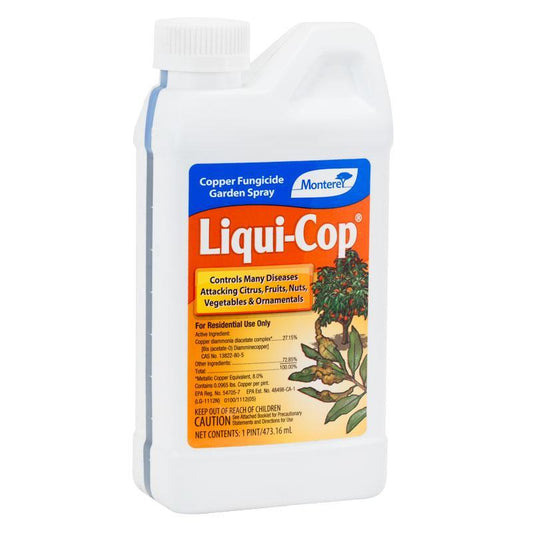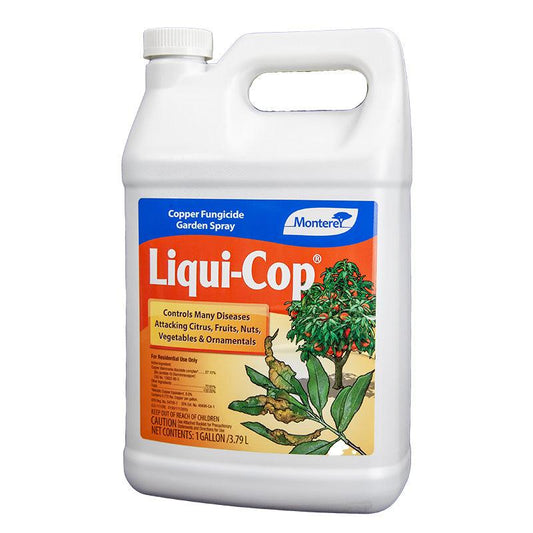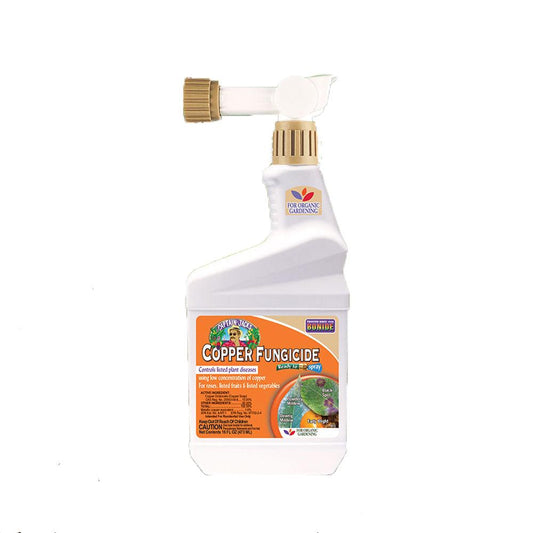Collection: Copper Fungicides: Effective Disease Control for Organic Gardening
Copper fungicide is a trusted solution for managing plant diseases in both the home garden and commercial farms. Commonly used in organic gardening, these copper based fungicides are effective against powdery mildew, downy mildew, blights, bacterial spots, and other pathogens.
Made with active ingredients like copper sulfate, copper hydroxide, and copper oxychloride, copper fungicides release copper ions that disrupt fungal growth at the cellular level. They’re available as copper fungicide concentrate or conveniently ready-to-spray formulations, providing flexibility depending on your application needs.
Benefits and Best Uses
- Controls fungal and bacterial diseases on fruits, vegetables, flowers, and ornamentals
- Safe for use in organic gardening (check the product label for organic certification)
- Offers residual protection and is often safe to use up to the day of harvest
- Available in both liquid copper fungicide and concentrate forms
Copper fungicides are especially helpful in preventing issues early in the season. To properly apply copper fungicide, always mix with water when using concentrates and follow the recommended application rate listed on the product label.
Application Tips
- Use copper fungicide concentrate for customizable mixing and broader coverage
- Choose conveniently ready-to-spray products like Bonide RTS for ease of use
- Reapply after rain for continued disease control
- Rotate with other treatments to avoid copper buildup in soil
For best results, follow all product label guidelines and avoid applying during wet weather.
Target Plant Diseases
Copper fungicides help manage numerous plant health issues:
Copper Fungicides
At Grow Organic, we offer a selection of fungicide copper products to protect your garden from common plant diseases. Whether you need a liquid copper fungicide or a copper fungicide concentrate, our products are designed to support healthy plants while meeting organic standards.
Explore our collection to find the right solution for your home garden, fruits, vegetables, and ornamentals.
 Sold out
Sold out




